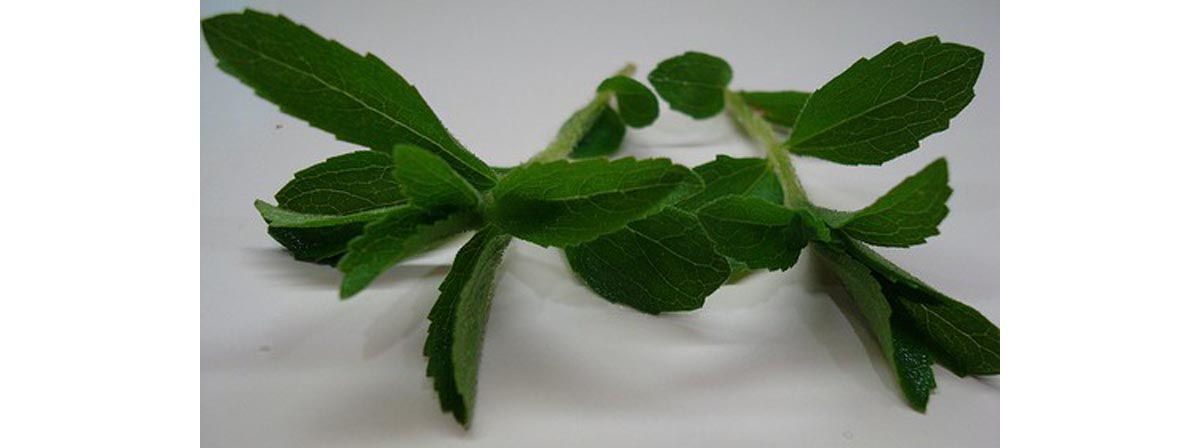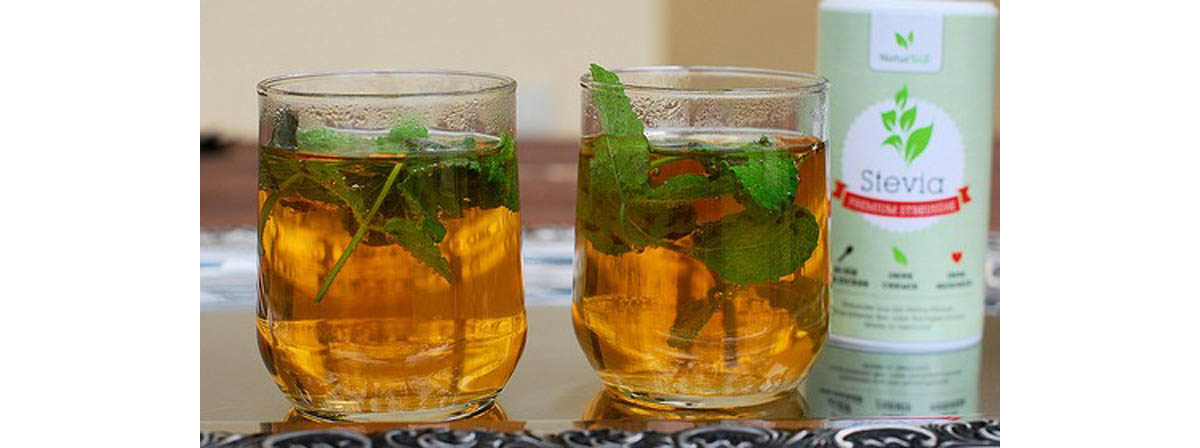Stevia is a plant in the chrysanthemum family originally grown wild in parts of South America. It is a shrub which was primarily found in parts of Brazil and Paraguay. Even before colonial rule, Stevia was used by native south Americans to sweeten traditional drinks.

Stevia Rebaudiana is the only species of the stevia plant which is renown for its incredible sweetness. Today, it is bottled and packaged in powder and liquid form, and sold all over the world. Farmers now grow stevia for market in China, Japan, Brazil, Paraguay, a few islands in the Pacific Rim and more recently in California and even in the most fertile parts of south eastern Canada.
Benefits of Stevia
The main reason Stevia has gained so much popularity is that it is an organic sweetener. It is derived from a herb, and has no calories. This zero calorie option makes it a huge seller for most people looking to reduce their intake of refined sugar. In addition, it offers a healthy alternative to synthetic sweeteners like Sweet n' low, Splenda and Equal, which are made up of chemically formed sucralose, aspartame and saccharin.
Stevia is between 10 and 15 times more sweet than regular sugar. That is a huge difference- and it is dependent upon each plant. However, when it is highly processed and extracted, it can be between 250 and 300 times sweeter than natural sugar. Far less is required to get the same flavour as with sugar.
Stevia vs sweeteners
The major difference between Stevia and other sweeteners is where it comes from. While there are also a lot of inconclusive studies on artificial sweeteners, no studies have ever found a possible connection between stevia and brain cancer or central nervous system problems.
Sweeteners are developed in a lab and processed in a factory whereas Stevia is a herb; grown, harvested, and processed in one of several ways to separate the sweet glycosides.
Once through the processing, Stevia's nutritional potential is almost negligible. Sweeteners do not contain any nutritional value at all; stevia and artificial sweeteners are on par when it comes to nutritional factor.
Regulating Stevia
The United States Food and Drug Administration has recently approved Stevia as a natural sweetener. Initially, the position of the US FDA was a little ambiguous, but with the proof that it has no negative health effects, it has been accepted as an alternative to sugar and corn syrup. Several credible studies on the effects of edibles are required before the FDA makes decisions on what is accepted and what is not.
Is Stevia For You And Your Family?
Stevia offers an acceptable, safe alternative to high calorie sugars and corn-syrup. With America's waistbands getting larger than ever, finding safe substitutions has become a priority. A can of pop contains 150 calories. You can likely do without the extra calories, let alone all that simple sugar, likely to be quickly stored as fat. Alternatives to sugar are becoming a bigger business every year, and traditional sweeteners are getting pushed to the side as people look for natural alternatives.

The long-term effects of chemical sweeteners are unknown, as studies rarely last longer than a couple of years. Using sweeteners from natural sources is arguably more safe in the long run.
How to best use Stevia
There are a few different forms of stevia that you can get your hands on at a local natural food store or health food store. It is available in a liquid and powdered form, making it fairly diverse.
The only limitation to stevia is that it cannot caramelize as sugar does. When it comes to making things like meringue, stevia won't likely work. In addition, if you are concerned with the colour of the food, be aware that stevia is naturally green. Depending on the quantity you use, it may change the color. However, there is an extracted version of stevia which is clear, both in liquid and powdered form.
Aside from being wary of the color of the herb, you can use Stevia is any way you use sugar. Add it to coffee and tea, use it in baking, cooking and anything else.
One of the coolest things about stevia is that anyone can grow the plant and extract the sweetening from it from home. Using either the leaves, or the raw green powder, blend with up alcohol. You can also blend it with water for 24 hours, but it does not yield the same amount the sweetening. The alcohol content can then be reduced by heating it slightly for some time, letting the alcohol evaporate off the top. Filter the liquid out of the leaves or powder and you'll be left with your very own, home-made Stevia!
Go ahead and try Stevia for your family, and see if it makes a positive difference, you'll likely be satisfied with the changeover, and feel good about eating more clean, natural sources. You'll also be reducing your simple sugar intake in a healthy way. Just be sure that you don't replace those calories with other unhealthy ones!
- “Stevia Rebaudiana: Nature's Sweet Secret”. By David Richard. Accessed November 2012. Retrieved from: http://www.stevia.com/Stevia_Article/Frequently_asked_questions_FAQ/2269
- Photo courtesy of Tzuhsun Hsu by Flickr : www.flickr.com/photos/alberth2/2519843791/
- Photo courtesy of kochtopf by Flickr : www.flickr.com/photos/kochtopf/8035677870/


Your thoughts on this